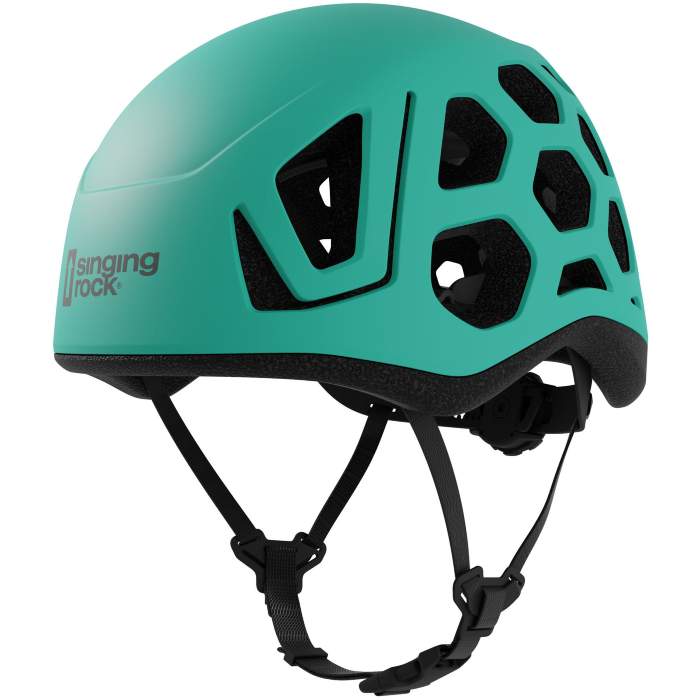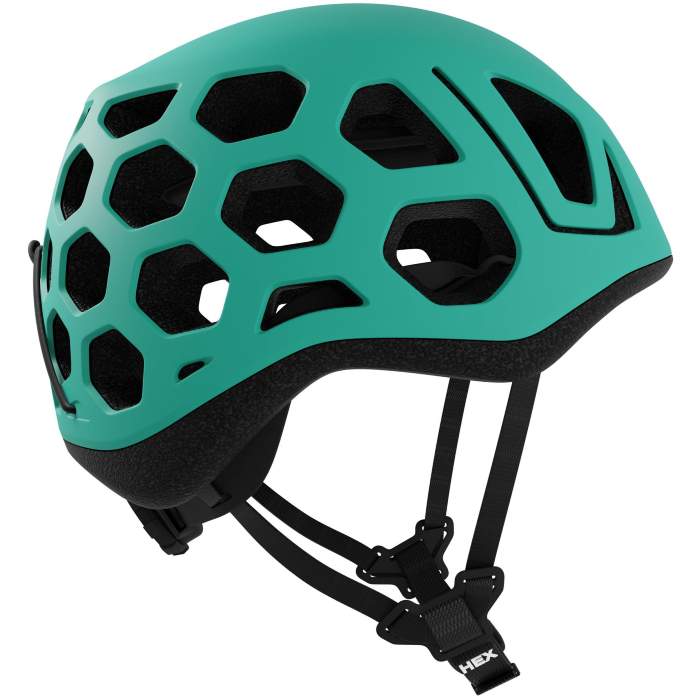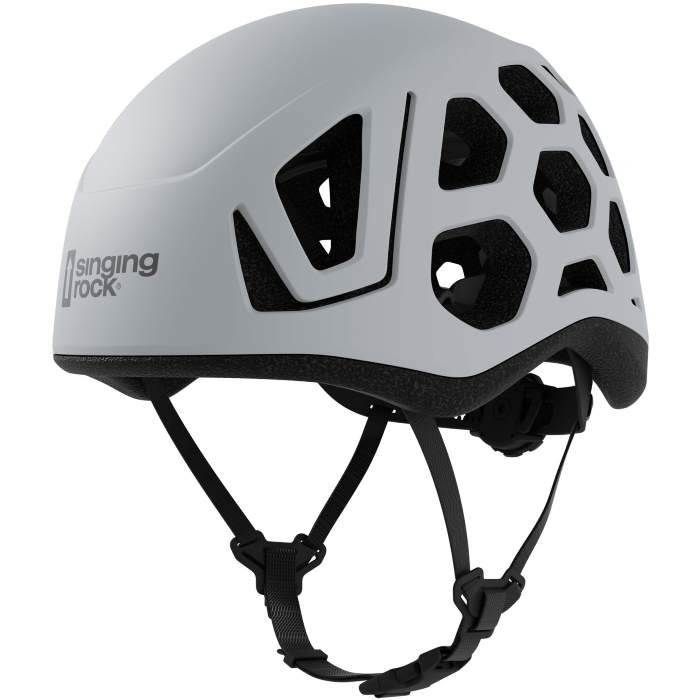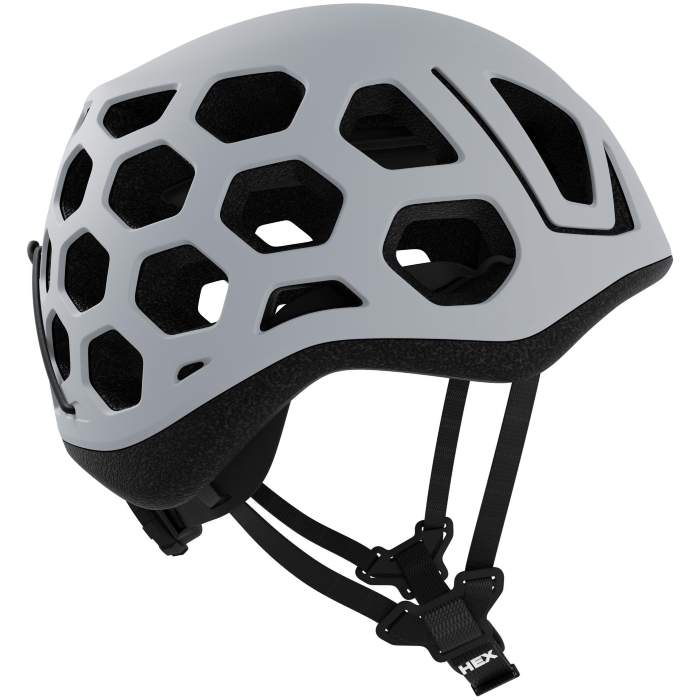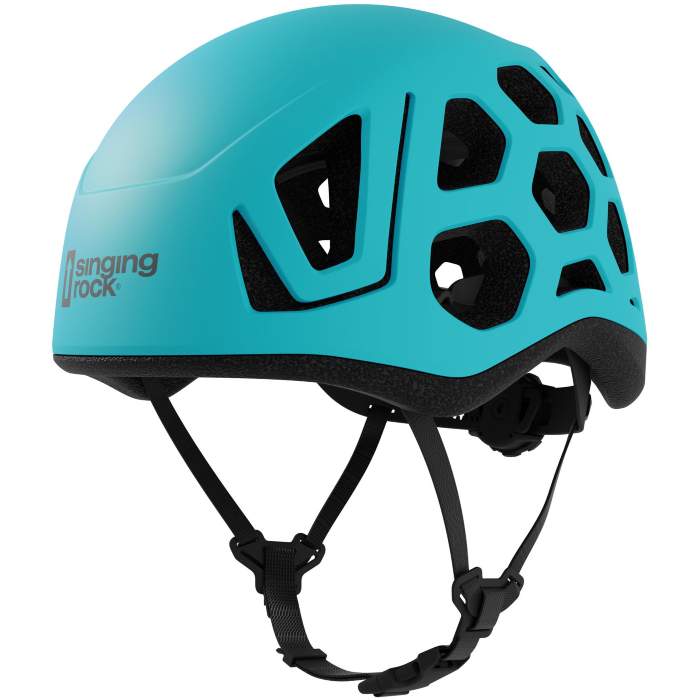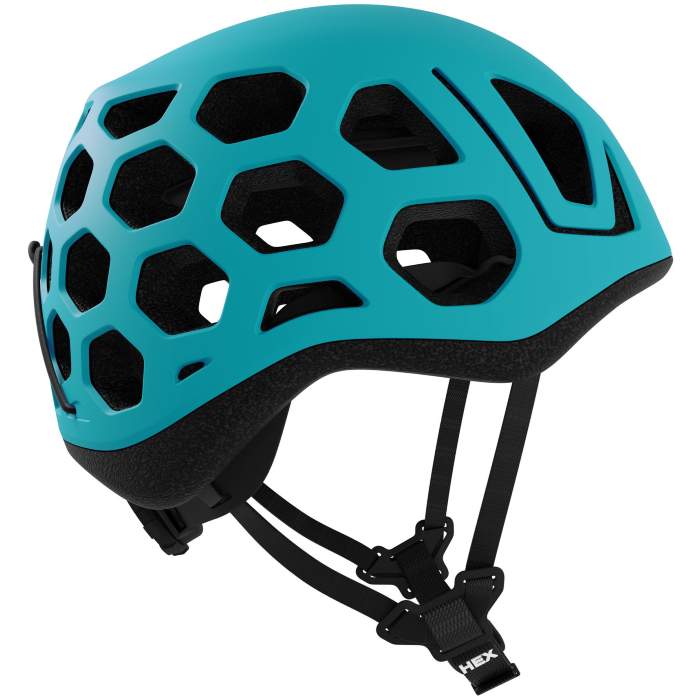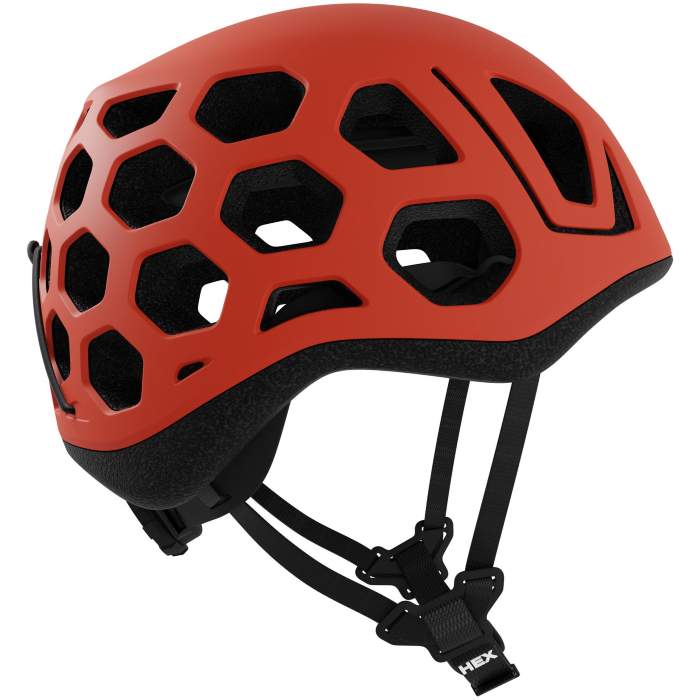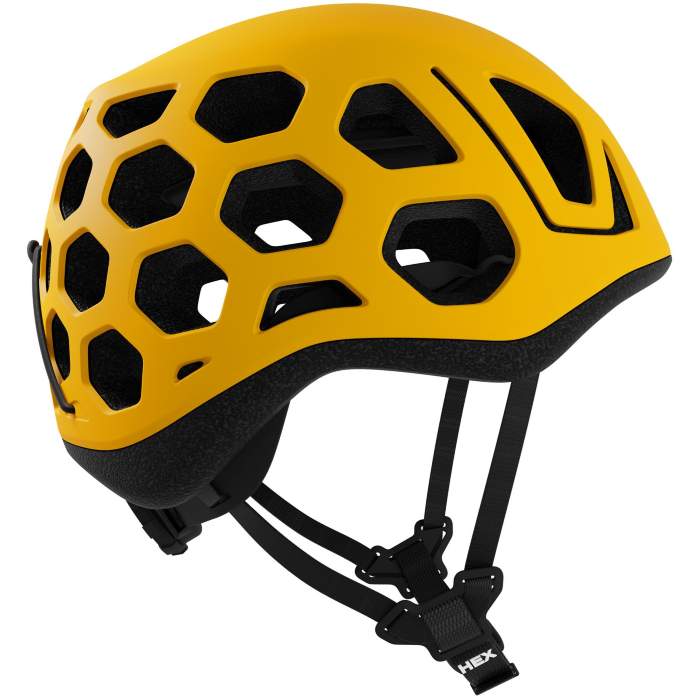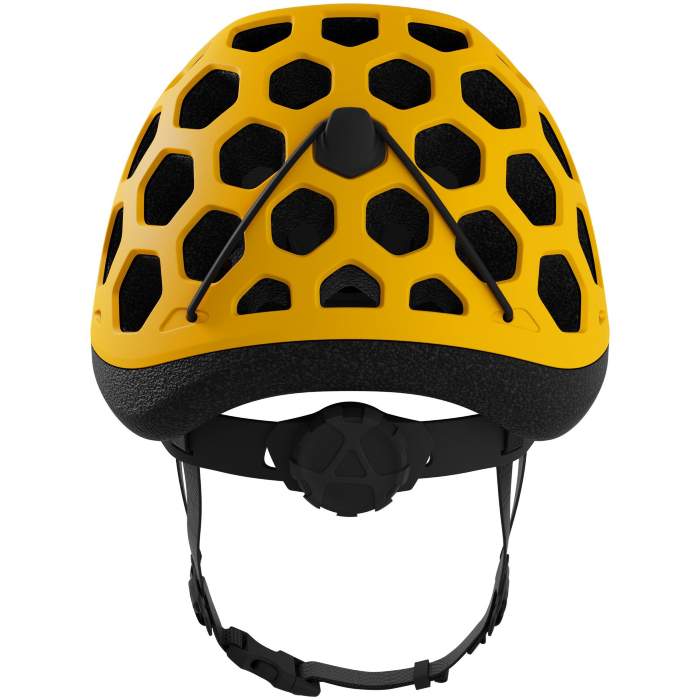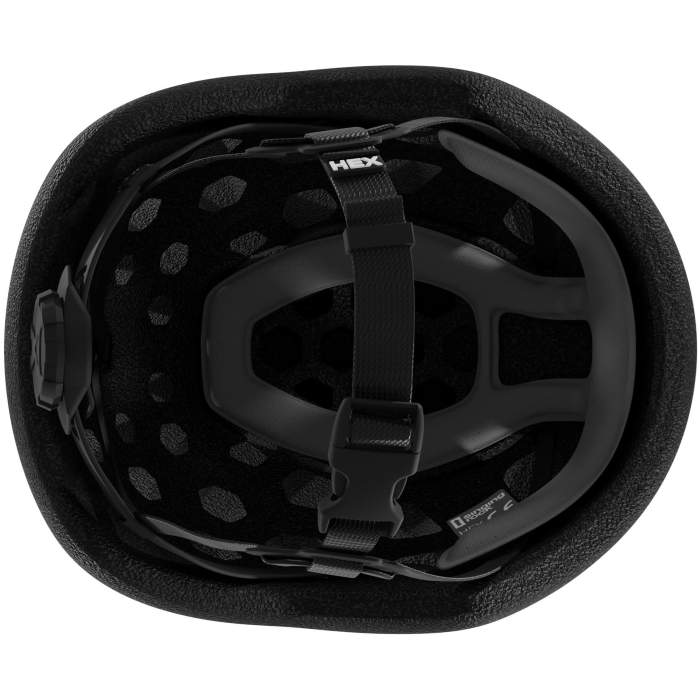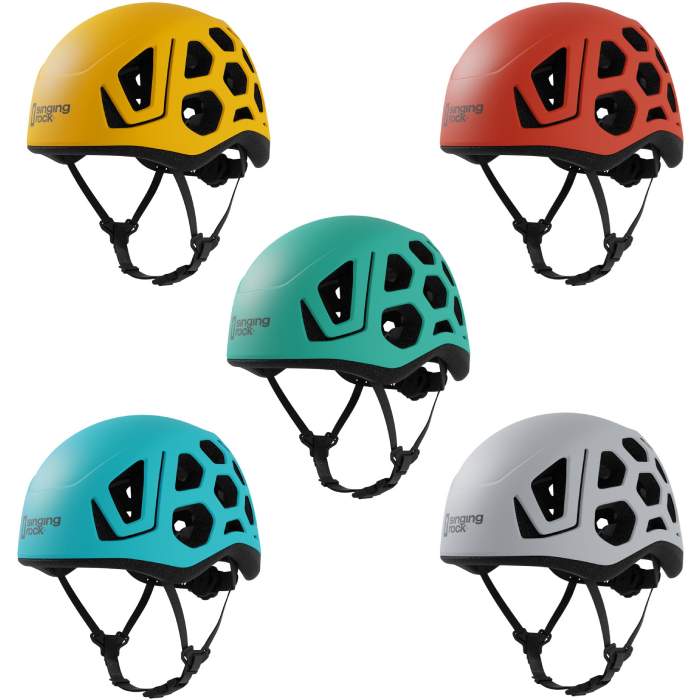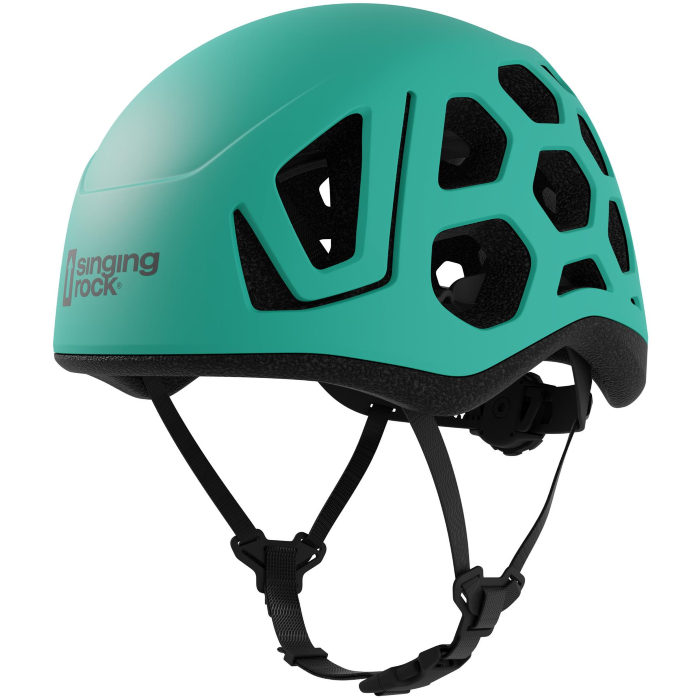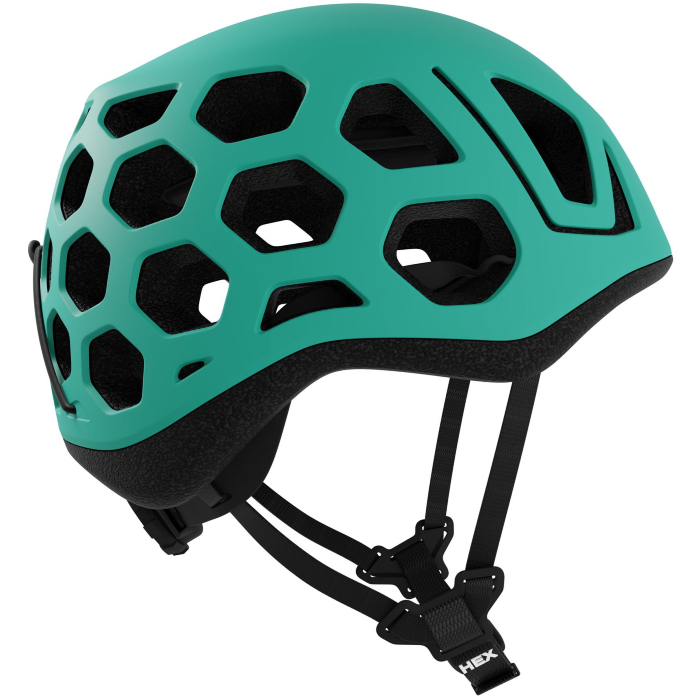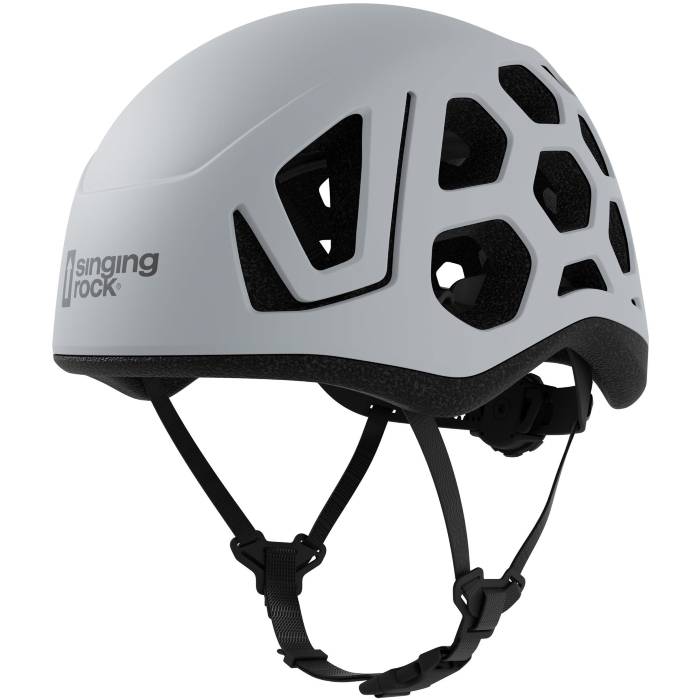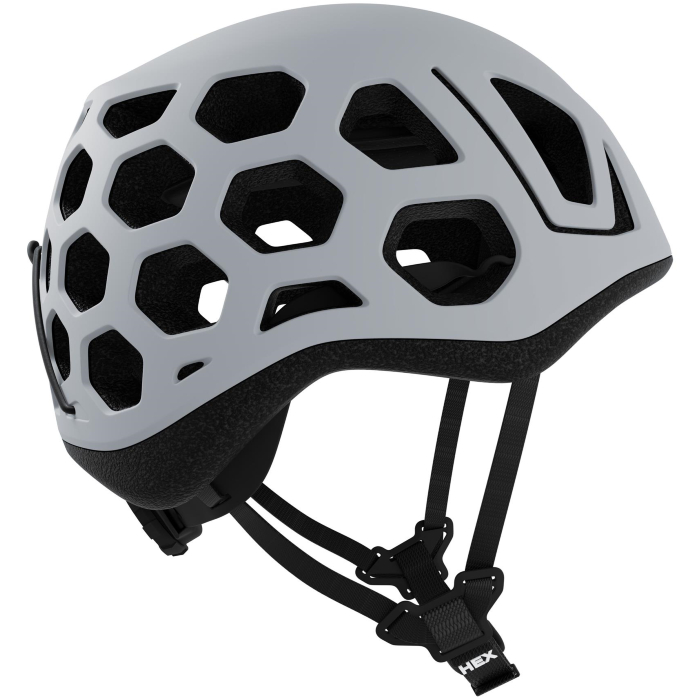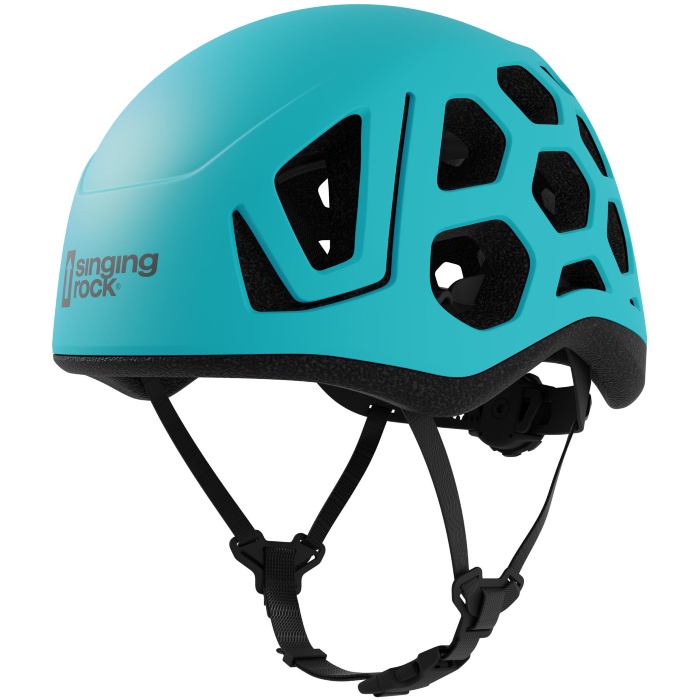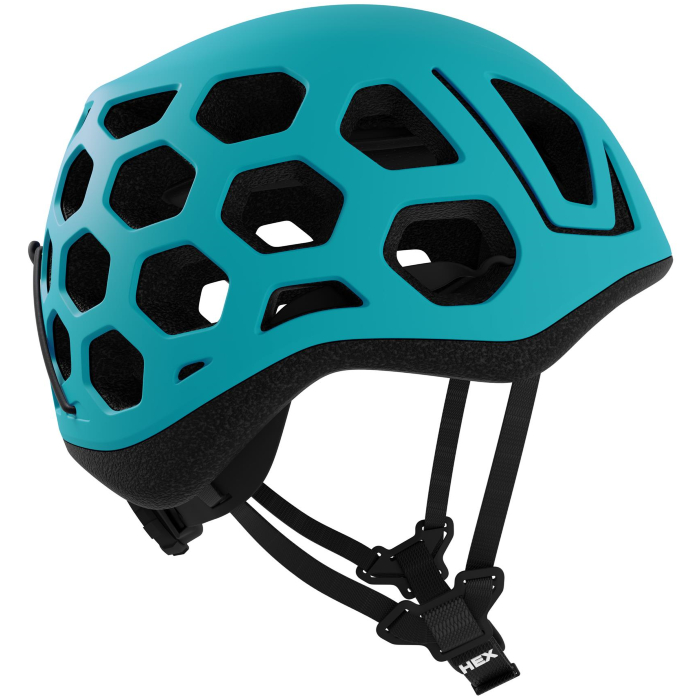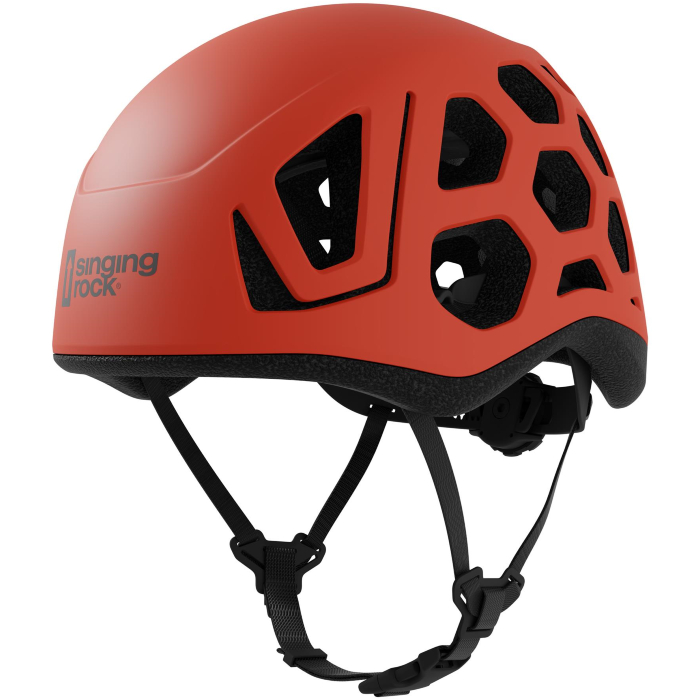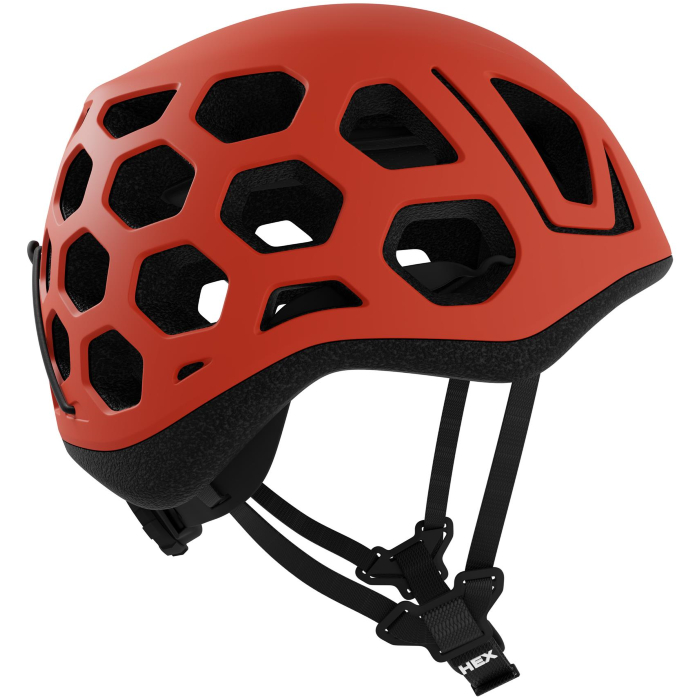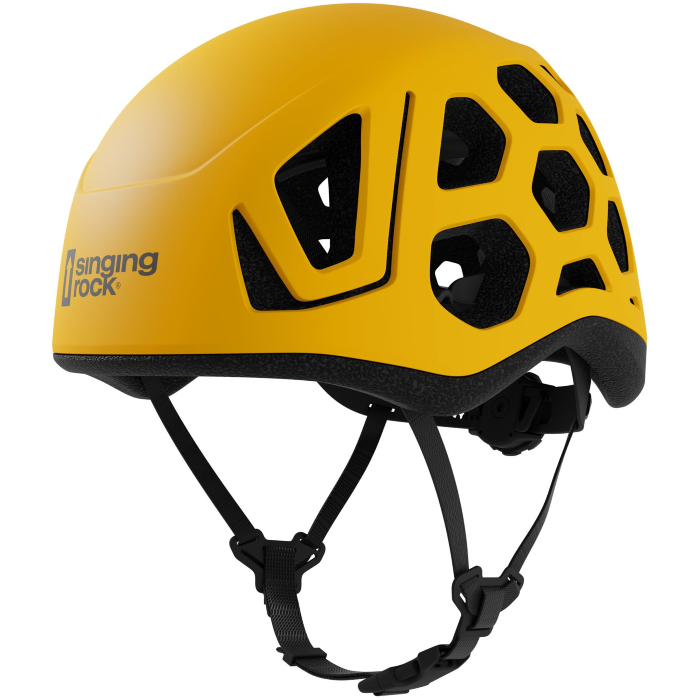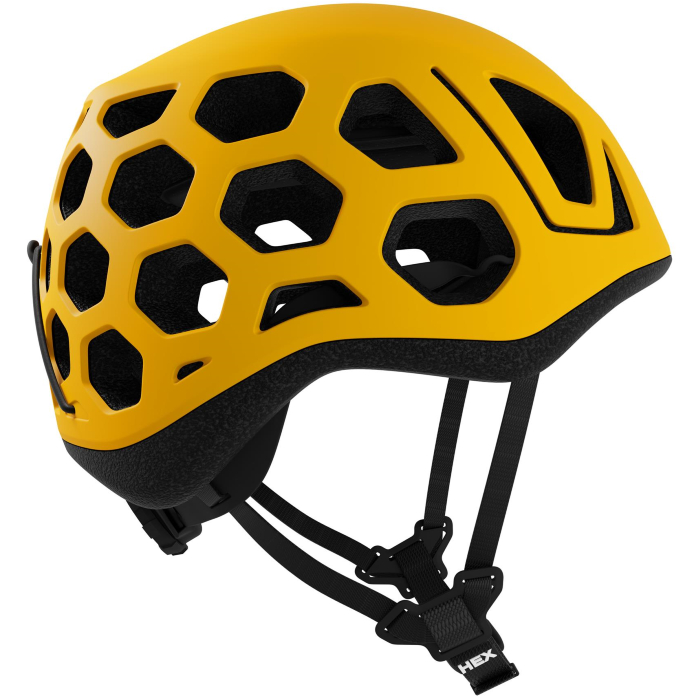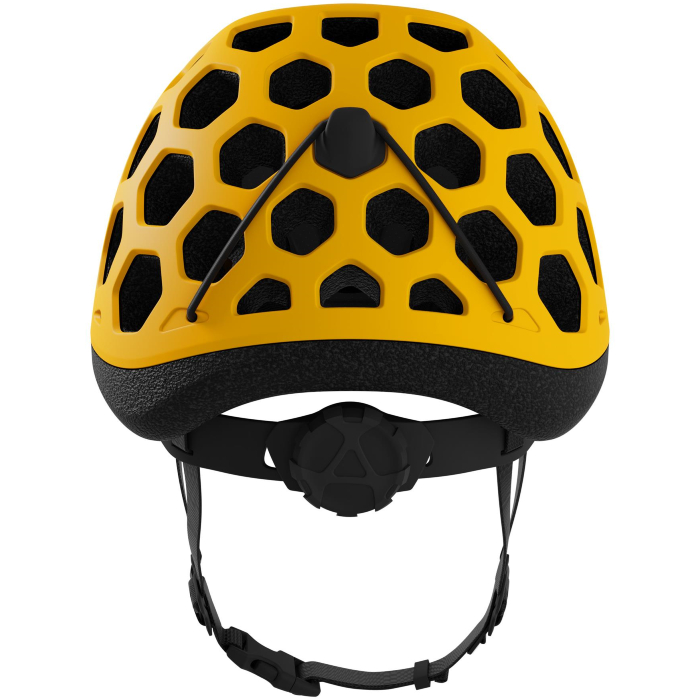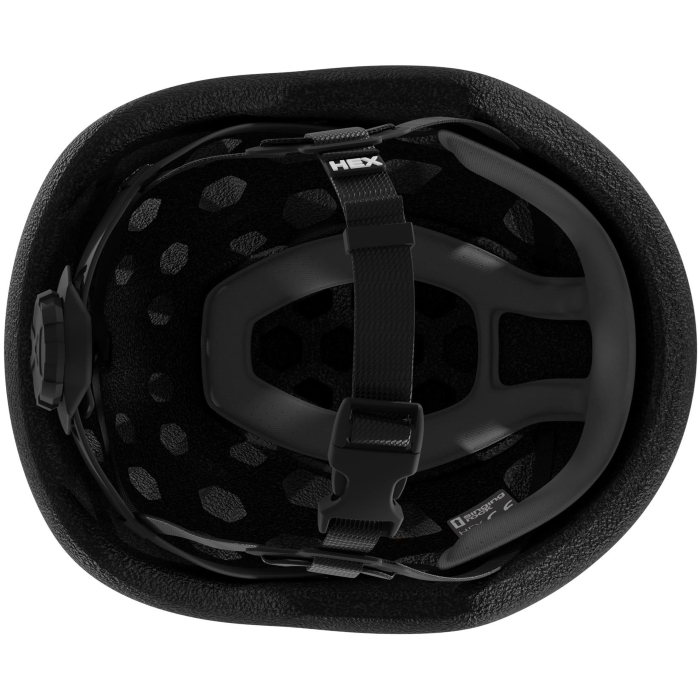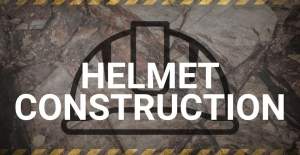A pictoral representation of the UIAA-106 and EN-12492 standards for helmets.
Hex
Description
Durable, fully ventilated helmet for climbing, mountaineering and other rope activities. Due to its durability, ventilation and versatility, it is suitable for both sport and trad climbing, via ferrata or rope parks.
- durable EPP + ABS shell protects against falling objects and guarantees a high degree of protection against impact force, including repeated impact force
- the "OPEN CELL" construction with 35 ventilation holes with a total area of 108 cm² guarantees maximum ventilation
- easy and quick size adjustment mechanism in the back of the helmet
- chin strap made of a soft and wide webbing provides maximum comfort
- inner padding is made as one piece, which prevents the loss of smaller parts and holds better
- inner padding is removable and washable
- integrated "EASY CLIP" front clips for reliable attachment of a headlamp, their shape prevents jamming of a hood / slings
- the "UNI FIX" elastic system on the backside simply attaches any headlamp or ski goggles
Durable, fully ventilated helmet for climbing, mountaineering and other rope activities. Due to its durability, ventilation and versatility, it is suitable for both sport and trad climbing, via ferrata or rope parks.
- durable EPP + ABS shell protects against falling objects and guarantees a high degree of protection against impact force, including repeated impact force
- the "OPEN CELL" construction with 35 ventilation holes with a total area of 108 cm² guarantees maximum...
Retail price
This Product is Hard to Find.
We don’t know where you can buy this item online in the US. We’ll continue to check all the major retailers and will update this page as soon as we find one.
If you know where to find this online in the US, let us know, and we’ll add the link.
Weight (g)  | 300 g M: 300 g / 10.6 oz |
Gender  |
Unisex |
Size Range  | 20.00 in - 24.00 in M: 52-58 cm / 20-23 in |
Features  |
Multiple Sizes |
Quick Adjust  |
Yes |
Vents  |
Yes |
Headlamp Compatable  |
Yes |
Face Shield Compatable  |
No |
| Certification | CE, EN |
No reviews yet.
The UIAA equipment standard provides a baseline for equipment performance in a test lab under controlled conditions on new equipment. Although these test conditions are relevant to the conditions encountered climbing, conditions encountered at the crags and the condition of the equipment are equally important. This recommendation from the UIAA member federation The British Mountaineering Council (BMC) provides vital equipment information that is NOT explicitly addressed in the standard, particularly failure modes of the equipment and recommendations for the use, inspection, maintenance, and retirement of equipment.


